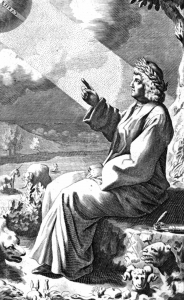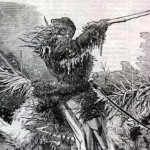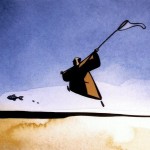 Here’s a fun account of (some of) the thoughts that went into the music behind Scott’s highly-successful The Martian — an account (via Daniel Schweigber’s interview with composer Harry Gregson-Williams over at Film Music Magazine) that features a surprise cameo from Rome’s very own Lucretius:
Here’s a fun account of (some of) the thoughts that went into the music behind Scott’s highly-successful The Martian — an account (via Daniel Schweigber’s interview with composer Harry Gregson-Williams over at Film Music Magazine) that features a surprise cameo from Rome’s very own Lucretius:
A key area for me was how to play “us” looking on at him as it were. Everything Mark does becomes well-known and public knowledge. There’s a lot of warmth and good will that he feels through his limited communication, and one of the ways I was able to express that was literally through the human voices of a choir. I drew their text from “On the Nature of Things” by Lucretius who was a Roman philosopher who lived before Christ. It creates music that is “holy” without being specifically religious as such. His text is concerned with the infinity of space and our place in the universe, which seemed appropriate.
No, I didn’t ferret this out for myself; the aforementioned “Song Exploder” podcast’s host (Hrishikesh Hirway) mentioned it, and I just happened to be listening. Which means (sadly) that I can’t take much credit for it, other than for the fact that I have ears. But it also means (happily) that I can share the entire “Song Exploder”episode with you. And it’s very fun. G-W’s discussion of the choir begins around the 7:50 mark, and I really like the way he was anxious for them to be singing actual words rather than just “oohing and aahing” like the “typical Hollywood choir.” Having yet to see the film, I can’t speak so much to the appropriateness of the text (and I moved right on past the “holy but not religious” line), but the point about how he was using the choir to try and get at the problem of “‘us’ looking at him” is really cool stuff. Attribution(s): “Lucretius” by Michael Burghers (source) is licensed under Public Domain via Wikimedia Commons.
















